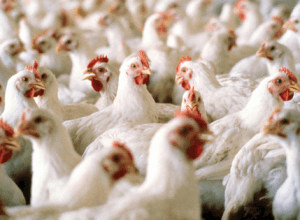Parliament approved GH¢11m to contain bird flu not received – Dr Attah
 Even though the country’s Parliament has approved an amount of GH¢11 million to contain the outbreak of bird flu, the money has not yet been received.
Even though the country’s Parliament has approved an amount of GH¢11 million to contain the outbreak of bird flu, the money has not yet been received.
Dr Alice Attah, Greater Accra Regional Veterinary Officer, said that the lack of funding was preventing the working groups to fight the current outbreak of bird flu in the country.
She said a total of 23 outbreaks sites had been recorded from April 2015 to date, adding that, out of a total of 39,670 birds involved 63,414 had been culled by officials.
Dr Attah, who was giving a briefing on the situation to members of the working group in Accra, said three regions were affected but Greater Accra Region is the worst hit, with 20 outbreaks.
Volta Region recorded two whiles Ashanti had one case of the outbreak.
She said 14 districts were involved and that the disease was spreading very fast in three districts in the region, including Ga Central, Ashaiman and Dangbe West with no reported cases of human infections.
Total initial bird population at the 14 outbreak sites are 63,414 from which a total of 23,744 birds died and 39,670 birds destroyed.
Dr Attah said a total of 1,103 crates of eggs and 37 bags of feed had also been destroyed.
However, 711 bags of palm kernel cakes and over 500 bags of feed were yet to be destroyed.
She said because of funding problems, the affected farms had not been compensated.
She said although Parliament had approved an amount of GH₵11 million to fight the bird flu, including GH¢3.5 million for compensation, the funding had since not been received.
All 216 districts in the country were each given GH¢1,000 for awareness creation of the disease for surveillance and radio talk shows to educate the listeners on avian influenza, Newcastle disease, quality meat slaughter, stakeholder consultations and visits to all live birds markets in their districts.
She said all district metros and municipal veterinary officers in the GAR have been asked to submit information on all poultry farms in their districts, list of live birds and actions for surveillance.
Dr Attah said a ban had been placed on birds hawking on the streets and all poultry movements were to be accompanied by movements’ permits, which is extended to livestock, like cattle, sheep, goats and slaughter permits to be inspected by the police at check points.
She encouraged large commercial farmers to insure their farms because of the difficulty in getting compensation.
She commended Kpone Katamanso and La Nkwantana Assemblies for giving out lands, where the birds were buried and also for the disinfectants.
Dr Helena Acquah, Epidemiologist, said the avian influenza virus (HPAI) is highly pathogenic to poultry species, constantly evolving with unpredictable results, poses the risk of a human pandemic, threatens livelihoods, especially of rural poor and causes economic losses, and affects poultry and poultry products.
She said H5N1 is the virus of interest in the most recent global outbreak, adding that, domestic fowls, ducks, geese, turkeys, guinea fowl, quail and pheasants are very susceptible
Immediate source of infection is hard to pin down but most outbreaks historically have started with direct or indirect contact of domestic poultry with wild waterfowl, Dr Acquah said.
She indicated that once established, the disease is highly contagious and high concentrations of virus are excreted in feces and in oculo-nasal discharges.
It has an incubation period of three to seven days, depending on the strain of the virus, dose and route of exposure, species and age of host and immune status of host.
Rapid response teams must be mobilized and deployed to eradicate infected flocks, within 24-48 hours of high suspicion or confirmation of disease in order to contain it, she added.
It would be recalled that in April 2007, there was an infection of the virus in Tema, and in May in Sunyani and Aflao in June with 10,000 birds’ culled and no human infection.
Source: GNA
